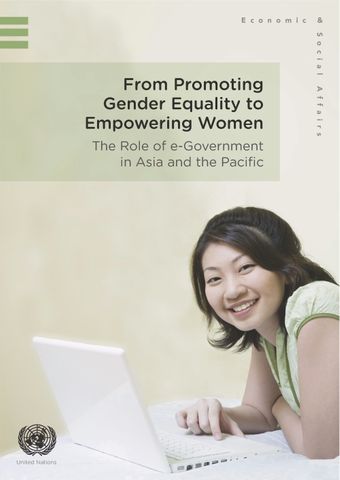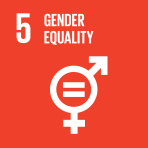Executive summary

- Author: United Nations
- Main Title: From promoting gender equality to empowering women , pp 17-20
- Publication Date: August 2014
- DOI: https://doi.org/10.18356/a11f35f3-en
- Language: English
The adoption of ICT in the public sector, particularly through e-government initiatives, has become a policy priority for many developing country governments. Notably in tune with the Millennium Development Goal 3, e-Government represents a significant opportunity to create a mechanism of greater gender equality in basic service delivery, in priority areas such as education, health and social protection. Further, it broadens the range of service providers from central, local governments to private sectors and women NGOs, thereby allowing the services to be more women-driven and women-focused. Ultimately, under a positive cycle of strengthened gender equality in basic service delivery and empowerment of women as users of these services, the true potential of e-Government lies in changing the paradigm of participation and representation of women in society. In this sense, mainstreaming gender equality in e-Government proposes an entry point of discussion as to how to include the empowerment of women in the post-2015 development agenda.
© United Nations
ISBN (PDF):
9789210565523
Book DOI:
https://doi.org/10.18356/86d525db-en
Related Subject(s):
Women and Gender Issues
Sustainable Development Goals:
-
From This Site
/content/books/9789210565523c005dcterms_title,dcterms_subject,pub_keyword-contentType:Journal -contentType:Contributor -contentType:Concept -contentType:Institution105
/content/books/9789210565523c005
dcterms_title,dcterms_subject,pub_keyword
-contentType:Journal -contentType:Contributor -contentType:Concept -contentType:Institution
10
5


